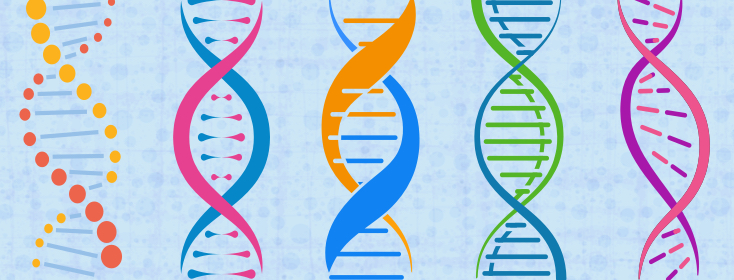Is Ehlers Danlos Syndrome the Reason for My IBS?
IBS is not the only health disorder I have to contend with. I have several others, including Interstitial Cystitis (IC), Gastro-esophageal Reflux Disease (GERD), and Endometriosis. For a long time, I have wondered what the potential connection could be between all of them. It was not until only the past couple of years, that I finally found an answer that united all of these diseases and disorders and gave me the answer I was looking for.
My Ehlers Danlos Syndrome diagnosis
In spring 2017, I saw a geneticist who, after a thorough evaluation, diagnosed me as having Ehlers Danlos Syndrome, Hypermobility Type, otherwise known as hEDS. Ever since hearing about the syndrome a few years prior, I had wondered if I could have it. I had known for some time I had issues with hypermobility. I was prone to constantly spraining my ankles and wrists and more recently, had begun to sprain my jaw while chewing even simple things. As a child, I was familiar with a phenomenon known as "growing pains" where my legs ached profusely, as though I could feel the bones being stretched beneath the skin. I was also born with a severe case of clubfoot, a birth defect that is significantly more common in those with EDS than those without it.1
But I am sure you are wondering: what is EDS and what does it have to do with IBS?
Is there a connection between EDS and IBS?
EDS is a connective tissue disease – that is, those with the syndrome lack adequately working connective tissue and seem to suffer a deficiency of collagen. As a result, joints and tendons are not held together as they should be, which leaves the person more prone to injury and premature deleterious damage in the body. This also means the body tends to be in more pain (and more frequently) in an EDS patient than someone without EDS (unless that person has another pain-related disorder or disease like MS or fibromyalgia). So, while EDS may have meant I was a gifted yoga practitioner in terms of the interesting ways I could bend my body, it also has meant that at not even 40, I have the spine of a 65 year-old.
In terms of IBS, extensive research had drawn an intimate connection between it and EDS. For instance, one literature review study of EDS asserted that "It has recently been demonstrated that patients with hypermobile EDS (hEDS) present with GI symptoms related to the fore and hind-gut and these patients frequently meet the criteria for functional gastrointestinal disorders such as functional dyspepsia and irritable bowel syndrome."2 An earlier study that surveyed 134 patients with EDS revealed that 84 percent exhibited symptoms of one or more "functional bowel disorders," and that nearly half of the participants analyzed (48 percent) had IBS, while over a third (36 percent) had functional constipation. Not only that, GERD was in 68.7 percent of the respondents.3 In 2015, the prestigious Mayo Clinic conducted a 20-year review of their EDS patients to pinpoint other disorders related to digestion. Of the 687 patients with EDS they identified during their timeline, 56 percent had experienced GI issues, with more than a quarter (27.5 percent) manifesting what seemed to be symptoms of IBS.4
But why do those with EDS tend to have high rates of IBS and other digestive disorders and issues?
As noted by a presentation on EDS offered at a 2014 conference for physicians, EDS is not just about bones and joints – it also impacts organ and muscle function. The presentation states as its thesis that "Ehlers-Danlos Syndrome affects the vital physiologic processes of digestion, nutrition, elimination, and gut-related immune function."5
Grateful for the knowledge
In the grand scheme of things, I am relatively fortunate. Since my diagnosis, I have met others with EDS who are wheelchair-bound and can only eat via a feeding tube because their GI complications are so severe in relation to their syndrome. But at the least, having the EDS diagnosis helps me understand my body better and why I have multiple disorders that impact my body in a myriad of ways. Learning to manage my EDS then (through abstaining from intensive exercises and stretches and wearing compression clothing) helps me better manage my IBS. It is also validating to have a diagnosis that explains the extensive health complications I've experienced throughout my life.
If you have IBS and multiple other disorders and also exhibit signs of hypermobility (extreme flexibility and laxity of joints and skin, propensity toward injury), you may have EDS. Visiting a knowledgeable geneticist who specializes in EDS could help get you the right diagnosis and the help you need.

Join the conversation